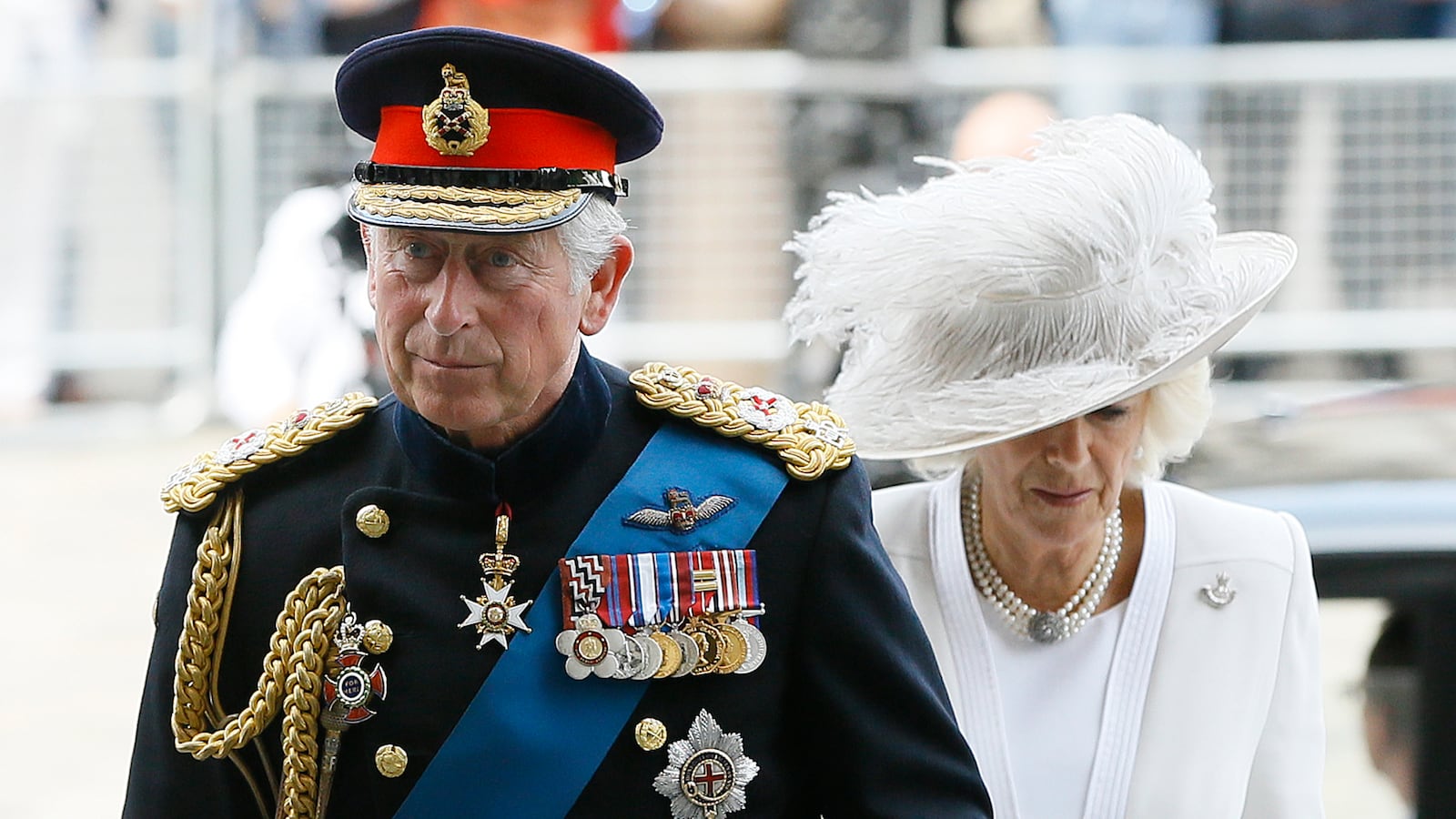It was perhaps inevitable that in all the good-humored celebration of the Queen becoming the longest reigning monarch in British history last week, the event also provided an opportunity for critics of the monarchy to stick their oar in.
Amidst the predictable calls for Queen Elizabeth to be the last monarch, one well-worn canard reared its head again—the idea that when she dies, Charles should be passed over in favour of his more popular son William.
This would see his wife, Kate Middleton, the Duchess of Cambridge, become Queen.
It was the slightly less than venerable OK! magazine that put the cat amongst the pigeons once again, with a report that following her record-breaking milestone, “the Queen has chosen to skip Prince Charles, 66… and is instead passing the crown to her 33-year-old grandson.”
The magazine even claimed to have a source which claimed, “It’s been a tough pill to swallow for Charles…He’s spent his whole life waiting to succeed his mother. He initially flew into a rage, ranting that the crown is rightfully his. But then he began to see her way of thinking.”
This is nothing more than wishful thinking. Charles will be the next king, provided, of course, that he performs the possibly arduous task of outliving his mother.
With the Queen now a perky 89 and confidently expected by most of her court to live to 100 or more (will she send herself a telegram?) as her own mother did, some might say that speculation about what will happen when she dies is premature.
However, the Palace has long been making such plans and Her Majesty is well aware of her own mortality, so one need not worry about hurting the Queen’s feelings.
But OK!’s story about the crown ‘skipping’ Charles (just for good measure, it added in the claim that the Queen will abdicate) is totally untrue.
The magazine’s suggestion that it is in the gift of The Queen to decide who will be the next monarch also demonstrates a deep, or perhaps willful, ignorance of the truth of the matter.
The Queen cannot choose her heir, and Charles is her heir. The only way the top job could pass directly to William is if Charles himself abdicated.
Even Edward VIII had to be pressured to abdicate voluntarily—he could not have been forced from the throne within the confines of the law.
There are many, including me, who think that Prince Charles will not be a good king—that he is not cut out for the job, and that his habit of shooting his mouth off in semi-private and on occasion in public will not make for a positive impact on public life.
Don’t forget, this is a man who caused massive public offense just last year when he compared Vladimir Putin to Hitler in comments to a member of the public, gleefully reported by the Daily Mail.
One can only imagine the impossibility of HM making a similar blunder.
Prince Charles, it seems, takes more after his free-speaking father than his tight-lipped mother.
Charles’s supporters argue that such interventions--and his well-publicized habit of lobbying government on issues close to his heart—are appropriate for a Prince of Wales who ‘cares passionately’ about what are often admittedly important issues, but will stop when he becomes King.
The important word to note here is the word ‘when’.
There is no chance of Charles giving up the role he believes to be his by divine right. And he may prove us all wrong and prove to be a very good King.
After all, Edward VII was widely expected to be a complete write-off, after his appalling behavior as Prince of Wales in the late 19th century, but he turned out to be one of the best and most influential kings of the 20th century, although he ruled from just 1901 to 1910.
One consolation for those who are averse to the prospect of King Charles is that he might be likely to have a similarly short reign.
But it should be noted that while we may not be particularly keen on the idea, reign he most certainly will.






